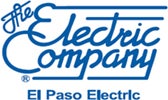Guide to solar panels in El Paso, TX (2023)
Updated August 19, 2020
El Paso is a great place to go solar. You’re probably using El Paso Electric as your utility. The combination of El Paso Electric's net metering program and the state's high average electricity usage make solar an excellent investment in El Paso.
The most significant incentive to install solar panels in El Paso is the 26% federal tax credit. However, the tax credit is set to step down to 22% at the end of 2020. This means in order to maximize your savings potential, the best time to go solar in El Paso is now.
By entering your address into our solar panel calculator, you can see what other local incentives are available in your area.
On this page:
Current cost of solar panels in El Paso
Showing data for:
Prices based on a 5.8kW system, after 30% federal tax credit
Solar prices near you
Net profit (savings less system cost)
$48,834-$59,685
Payback period
6.2-7.6 years
Recommended size for the selected utility bill
5.8kW
Solar panel cost calculator
El Paso solar panel cost & savings calculator
Current solar incentives and tax credits available in El Paso, TX
The 30% federal solar tax credit explained
The most significant incentive to install solar panels for homes and and businesses is the federal tax credit. Right now, the federal tax credit is equal to 30% of the total cost to install a solar system. The amount of the tax credit is then deducted from your federal taxes. You can claim the credit over several years if the amount you owe in taxes is less than the amount of your tax credit. You can only take advantage of the federal tax credit if you pay federal income taxes. At the end of 2032, the amount of the tax credit will fall to 26%. Even though there is no rush to get the maximum tax credit value, you don’t want to wait when it comes to a financial investment like installing solar. The best time to go solar is now.
How much will solar panels on my home save me?
The answer to this question depends on your electricity usage. Generally speaking, the higher your power usage, the greater your potential savings are from installing solar.
The average monthly electricity usage in Texas is about 1,156 kWh per month. However, you are most likely using a lot more than this since this average includes small apartments and condos.
The El Paso solar panel savings calculator uses our database of electric rates from local utilities to convert your monthly power bill into how much electricity your home uses. From there, the calculator can work out how many solar panels you need to offset your power usage, how much a solar system will cost based on prices of local solar companies, and the amount of money you will save on your electric bill.
Cost and savings for a 10.32 kW average-sized solar system in El Paso
Cost per watt range
$2.25 - $2.76
Average payback
6.6 - 8 years
Annual power production
15,441 kWh
Levelized cost of solar energy
4¢ /kWh
If you don't get solar
20¢ /kWh
(forecast avg Texas electric rates over the next 25 years)
Average solar savings on this system over the next 25 years
$48,213
(Savings shown after repayments of capital)
Related topics:
Are solar panels worth it in El Paso
Solar panels have fallen in price by more than 80% in the last ten years. In 2023 they also remain subsidized by the 30% federal tax credit and the net metering law making them an excellent investment. They offer a return well above the long term average return from both the share market and also property investment.
Another way to look at this question is the levelized amount you will pay for each kWh of power you will use over the next 25 years with and without solar panels. As you can see below the savings are significant.
Going solar in TX
Check out all of the ways energy providers of can help you be more energy efficient and save money.
Table 2: Available incentive programs
| Incentive name | Eligibility | Type |
|---|---|---|
| Residential Clean Energy Tax Credit | Federal | Personal Tax Credit |
| Renewable Energy Property Tax Incentive | State | Property Tax Incentive |
Table 2: Available incentive programs
|
Eligibility: Federal incentive
Type: Personal Tax Credit
|
|
Eligibility: State incentive
Type: Property Tax Incentive
|
Note: Please keep in mind that the best source of up-to-date information on incentives are the solar installers who specialize in your area.
